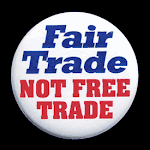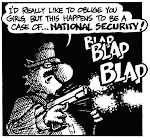Let the Market Work
Health care was a key issue in last week's election. Voters cited rising health care costs as their top economic concern when they supported candidates who made health care reform a priority. The "changes in the composition of the House and Senate will have a profound impact on national health policymaking in 2007 and 2008," the health advocacy group Families USA argues. Months before the election, the House minority leadership promised to tackle reform of the prescription drug program within the first 100 hours of the new Congress. During the first days of the 110th Congress, the House likely will vote to "lift the legislative prohibition that prevents Medicare from bargaining with the drug companies to secure lower prices." The change "would allow an important test of the hypothesis that government negotiators can wring lower prices from the manufacturers than those obtained by the private drug plans and pharmaceutical benefit managers that currently negotiate on behalf of Medicare beneficiaries." Already, the administration has said it "does not, under any circumstances, want the federal government negotiating lower drug costs." The drug lobby, for which the drug benefit has proved to be "a financial windfall larger than even the most optimistic Wall Street analysts had predicted," also opposes to the plan. But taxpayers could stand to "save as much as $190 billion over the next 10 years" if Medicare negotiated prices with drug makers. It is time to let the market forces of supply and demand make drugs cheaper for seniors.
THE 'GOVERNMENT-RUN' BOOGEYMAN: "Pharmaceutical companies, like companies in other industries, grant discounts in exchange for volume and market share. It stands to reason, then, that Medicare can get the best prices on prescription drugs by leveraging its group purchasing power -- just as Canada, other nations and other large payers in the United States do." The 2003 Medicare prescription drug bill, however, specifically forbids negotiations between Medicare and pharmaceutical companies. Medicare "pays for drugs indirectly, through the private insurers that administer the prescription program -- and those insurers typically pay higher prices than government agencies, like the Veterans Administration, that buy medicines directly from drug makers." The prohibition "dilutes Medicare's bargaining position," and the provision's repeal would open up drug prices to the "good old-fashioned free market economics" of bulk purchasing power. The administration has called the prohibition's repeal a step towards "government-run health care" and a "price control system where the government dictated prices." If Bush were to veto a bill containing such a provision, he would "have to explain why he is afraid of a real market competition."
THE LOW PRICE SPIN: The Medicare Part D program has not achieved the low drug prices it could achieve if Medicare were allowed to negotiate. In fact, prices are "significantly higher than the drug prices negotiated by the Department of Veterans Affairs, the Medicaid program for the poor, and foreign governments." (The governments of Canada, Australia, and the United Kingdom all successfully negotiate with pharmaceutical companies.) White House Press Secretary Tony Snow said yesterday that Part D has "has been incredibly effective in dropping prices far below what people had expected in the first place." But the minority staff of the House Government Reform Committee estimates drug prices could be reduced by another 25 percent or more. The Veterans Administration's experience with negotiation proves its effectiveness. "Among all of the top-20 drugs prescribed for seniors, the VA has achieved much lower prices than the lowest prices charged by all Medicare Part D plans," Families USA found. "The median price difference is an astounding 46 percent." The higher prices for drugs under Part D have "helped several big drug makers report record profits" after some companies "raised prices on many top-selling medicines by 6 percent or more this year, double the overall inflation rate." "In some cases," the New York Times reports, "drug makers have received price increases of as much as 20 percent for medicines that the government was already buying for people covered under the Medicaid program for the indigent."
FILLING THE DOUGHNUT HOLE: The goal of allowing Medicare to negotiate could not only lower drug prices; the savings the federal government receive also could be used to "significantly reduce the size" of Part D's infamous "doughnut hole." The doughnut hole is "perhaps the most bizarre and troublesome aspect of the Part D drug program." "Unlike most forms of insurance, the Medicare Part D prescription drug program has a hole in its middle." After beneficiaries reach their initial limit of total drug expenses ($2,250 in 2006), they have no prescription drug coverage until their total drug expenses reach a catastrophic threshold for the year ($5,100 in 2006). "While beneficiaries are in the doughnut hole, they must continue to pay their monthly premiums, although they do not receive any drug benefits. Only after they have spent thousands of dollars of their own money to get out of the hole ($2,850 in 2006), in addition to their monthly premiums, does their coverage resume." In addition, the doughnut hole "financially penalizes sicker individuals who have more substantial drug need" and generates anxiety among seniors with high prescription drug costs. The Bush administration has said it is working provide "coverage in the coverage gap," but in 2007, fees for "Medicare prescription drug plans that offer 'meaningful' coverage" in the doughnut hole "will increase by 87.4 percent to $103.20, compared with $55.08 in 2006."




















No comments:
Post a Comment